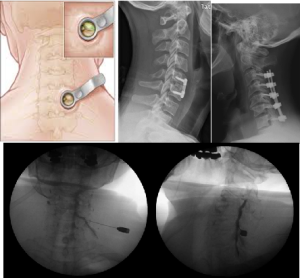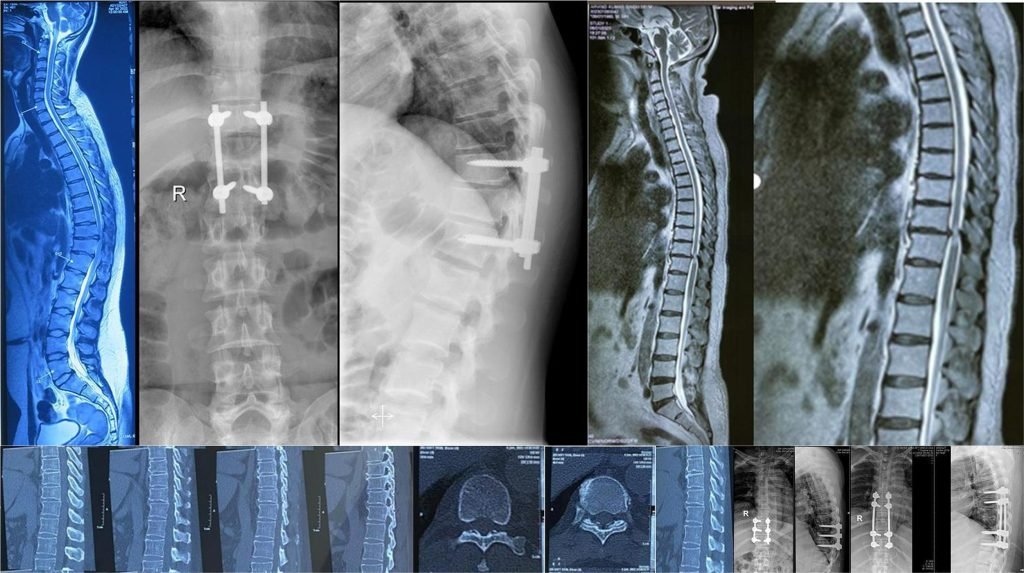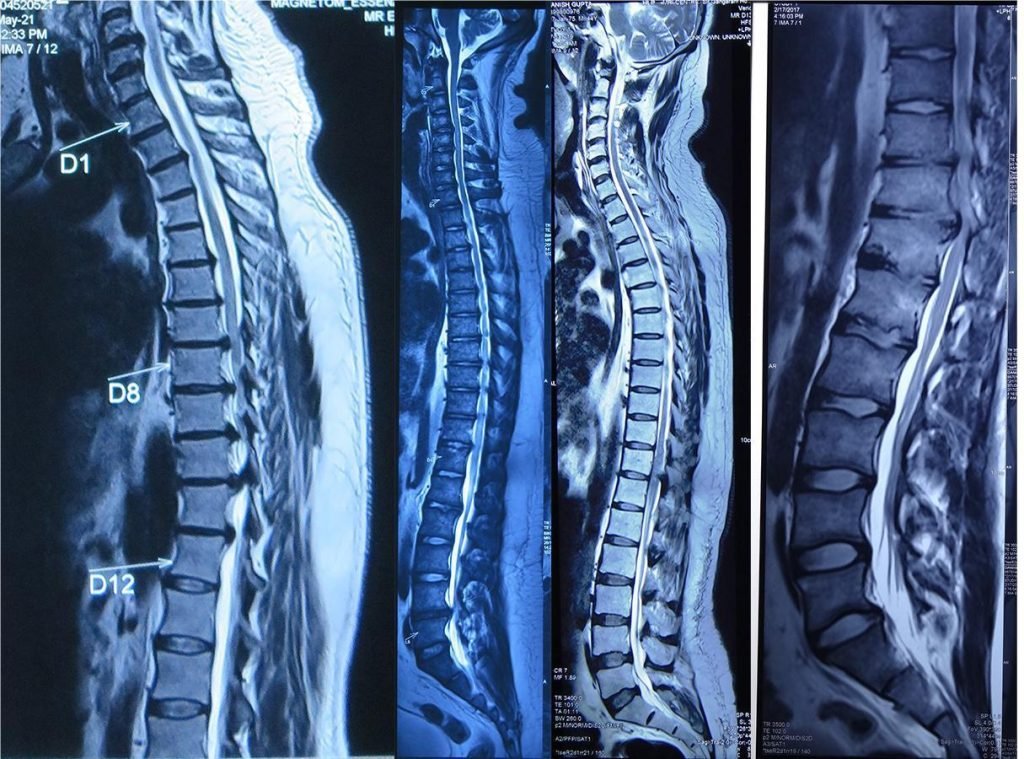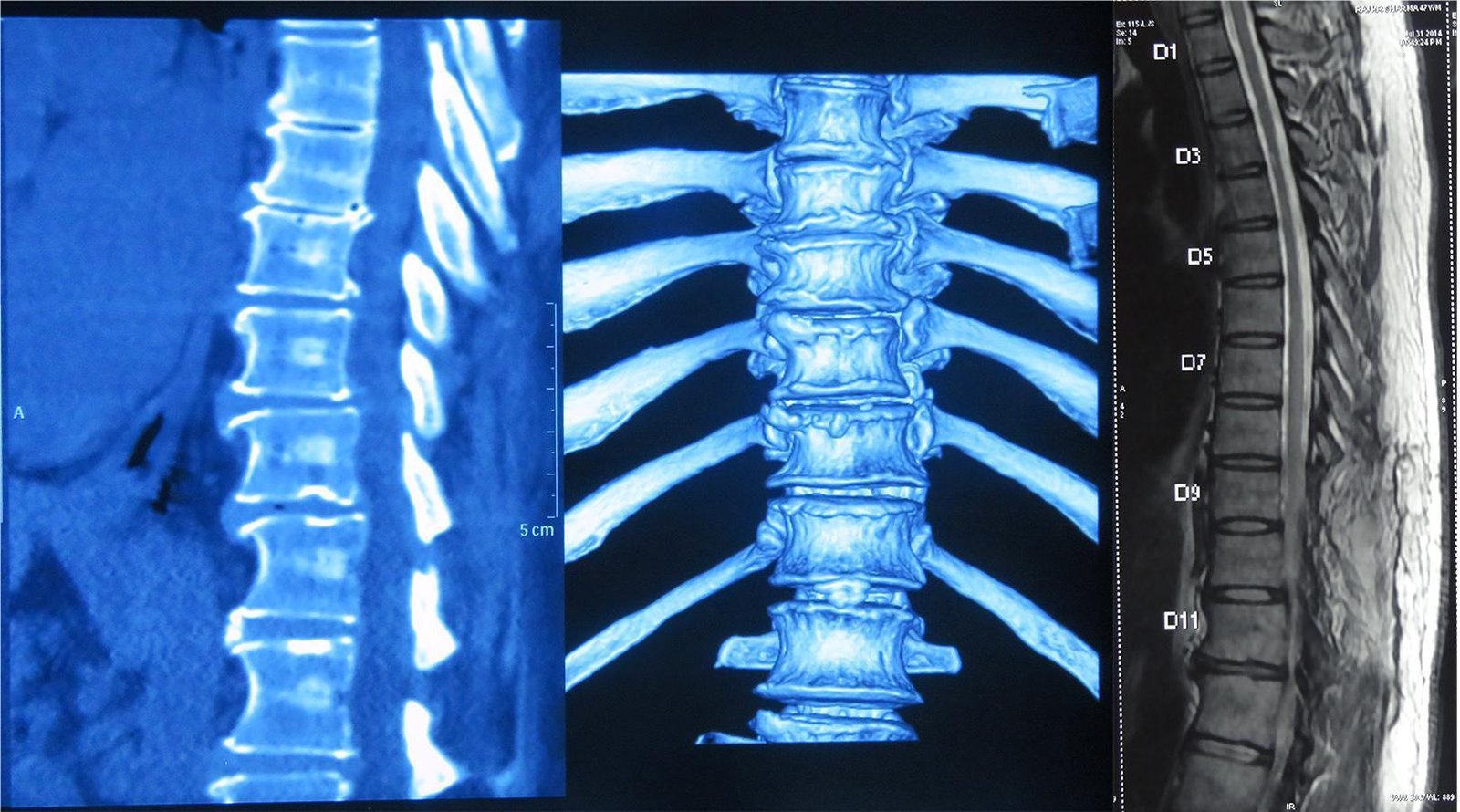

Cervical Myelopathy
Cervical myelopathy is a serious condition that affects the spinal cord in the neck (cervical spine). It occurs when the spinal cord becomes compressed due to changes in the spine, leading to a range of symptoms that can impact daily life.

Causes of Cervical Myelopathy
Several factors can lead to cervical myelopathy, including:
-
Degenerative Changes: Wear and tear of the spine with age (cervical spondylosis).
-
Herniated Disc: Bulging or slipped discs pressing on the spinal cord.
-
Bone Spurs: Bony growths caused by arthritis can narrow the spinal canal.
-
Injury: Trauma to the neck.
-
Congenital Factors: Some people are born with a narrow spinal canal.
-
Tumors or Infections: Rarely, these can compress the spinal cord.
Symptoms of Cervical Myelopathy
-
Weakness in the arms, hands, or legs.
-
Difficulty with fine motor skills, such as buttoning a shirt.
-
Numbness or tingling in the arms or legs.
-
Loss of balance, making walking unstable.
-
Neck pain or stiffness.
-
In severe cases, bladder or bowel control issues.


Treatment Options


Treatment Options
The treatment depends on the severity of the condition and its underlying cause. Options include:
1. Non-Surgical Treatments
-
Medications: Pain relievers, anti-inflammatory drugs, or steroids to reduce swelling.
-
Physical Therapy: Exercises to strengthen muscles and improve mobility.
-
Bracing: A brace may be recommended for support and stability.
2. Surgical Intervention
When conservative treatments fail or the condition worsens, surgery may be necessary to relieve spinal cord pressure. Techniques include:
-
Decompression Surgery: Removing the source of compression, such as a bone spur or herniated disc.
-
Spinal Fusion: Stabilizing the spine to prevent further damage.

Prevention and Living with Dorsal Myelopathy
While not all cases can be prevented, steps to maintain spine health include:
-
Regular Exercise: Strengthens back muscles and improves flexibility.
-
Healthy Posture: Avoid slouching to reduce strain on the spine.
-
Balanced Diet: Include foods rich in calcium and vitamin D for strong bones.
-
Avoid Smoking: Smoking can weaken bones and tissues, increasing the risk of spinal problems.
For patients already living with dorsal myelopathy, ongoing physical therapy, medication, and regular follow-ups with a spine specialist like Dr. Shankar Acharya can ensure better management and improved quality of life.
Consult an Expert
If you experience symptoms of dorsal myelopathy, consult Dr. Shankar Acharya, a senior consultant and experienced spine surgeon with over 30 years of expertise at Sir Gangaram Hospital, New Delhi. Early diagnosis and treatment can make a significant difference in your recovery and well-being.
RECOVERY AND LIFESTYLE TIPS
-
Follow the treatment plan advised by your doctor.
-
Practice gentle exercises to regain strength.
-
Maintain a healthy lifestyle to prevent further spine issues.




